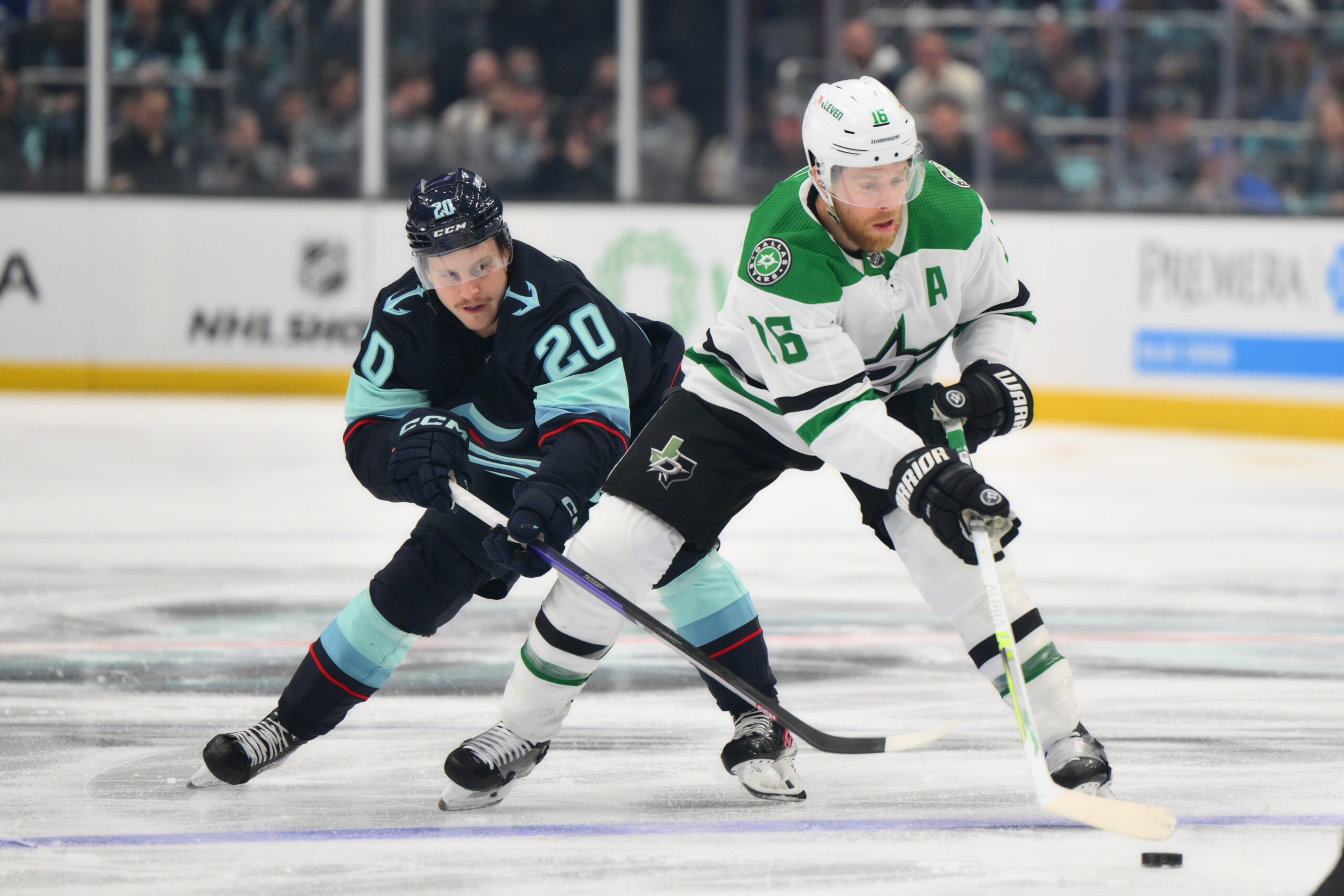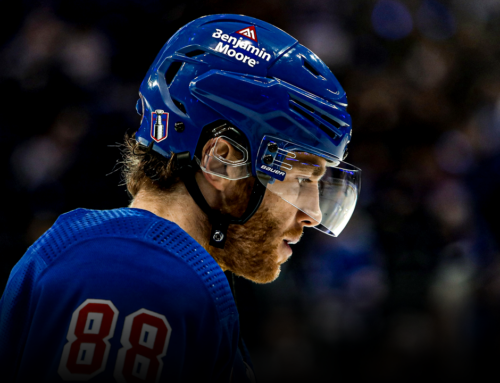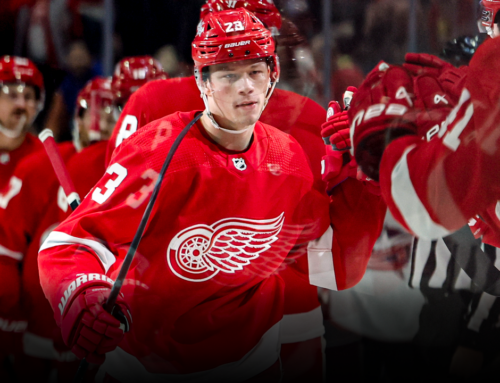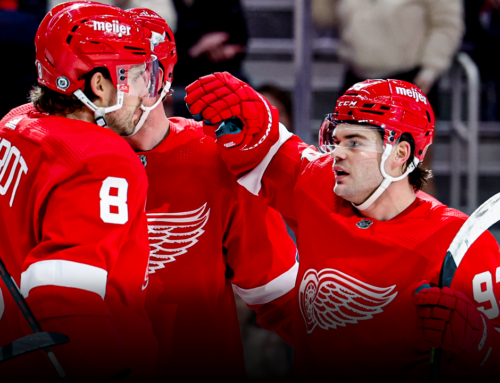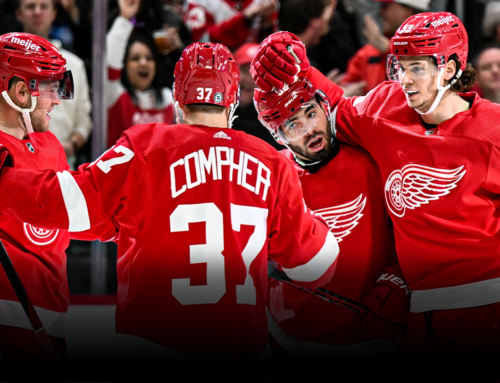“Stick-y business: NHL playoffs a showcase for savvy stickwork on offense and defense”
Alec Martinez remembers a time in his career when teams kept track of a stat less celebrated than goals and assists but arguably just as valuable.
“They called them ticks,” the veteran Vegas defenseman said. “How many plays you break up with your stick.”
Keeping the puck out of the net is just as important as scoring at this time of year when goals are hard to come by. Hockey players sacrificing their bodies to block shots or passes gets the headlines, but savvy stickwork is also on full display across the NHL playoffs, from blocking passing and shooting lanes to deflecting shots past unsuspecting goaltenders.
“Multiple aspects of stickwork can come into play: All season, but obviously during the playoffs everything’s heightened,” said Carolina defenseman Jaccob Slavin, who plays the most short-handed minutes for the top penalty kill in the NHL playoffs. “Passing lanes are important. Not taking penalties with your stick, that’s really important.”
Slavin is a master at defending without getting whistled for stick fouls, which include slashing, tripping, hooking, high-sticking, spearing and cross-checking. He won the Lady Byng Trophy for sportsmanship and gentlemanly conduct in 2021 for skating almost 1,200 minutes without one.
Postseason hockey is no time for gentlemanly conduct, but he and the Hurricanes have thrived in part because they’re one of the least-penalized teams still playing.
Stick discipline is also about not being a step behind an opponent, which can lead to stretching out with a stick — and penalties.
“Some of it would be timing, a lot of it body positioning: If you’re body’s not in a good position, then you’re reaching a lot more,” Slavin said. “A lot of it has to do, not even with your stick, but it’s more so with your body and being in the right position to use your stick.”
Martinez likes to play by the old adage that of “keeping your stick on the ice.” It could be the difference between a pass getting through to a top goal-scorer like Edmonton’s Leon Draisaitl or setting up a breakout going the other way; Carolina had three short-handed goals against New Jersey in Game 3 of their second-round series.
“Every play is so important, every pass is so critical, so now guys are very mindful of where their sticks are to force you to pass through sticks,” said retired forward Anson Carter, who’s now a Turner Sports analyst. “If a stick is in a passing lane, that might even deter you from making that pass, too.”
Maybe it’s a shot instead of a pass.
Seattle’s Yanni Gourde, who helped Tampa Bay win the Stanley Cup back to back in 2020 and ’21, is now a key part of the Kraken’s shot-blocking expertise. Gourde, who praised former Lightning teammate and now New York Rangers forward Barclay Goodrow for having the best defensive stickwork he has seen, shifts his focus quickly from cutting off passes to keeping the puck from going toward the net.
“When the pass beats you and you’re out of the shooting lane, the first thing you want to do is to put that stick in that lane first,” Gourde said. “You kind of make him think twice about shooting and then as you’re getting back into the lane, now your body’s in the lane, your stick is in the lane trying to prevent them from shooting.”
Sometimes that goes terribly wrong. Carolina scored a goal early in the first round when the puck fooled New York Islanders goaltender Ilya Sorokin because it banked in off the stick of one of his teammates.
The best defenders are conscious of trying to avoid inadvertent, unpredictable ricochets that can happen when shots ride up sticks and in.
“You want to be in a position where you limit the possibility of that happening,” Devils defenseman John Marino said. “You don’t want to try to screen (your own goalie) or anything. You’d rather box a guy out.”
At the other end of the ice, nifty stickwork can result in goals even the world’s best in net can’t stop. Few do it better than Dallas forward Joe Pavelski, who scored two of his four goals in the series opener against Seattle on deflections — including one where he batted the puck out of the air.
Florida’s Matthew Tkachuk, who has tormented Boston and Toronto by scoring on tip-ins, thinks it’s more practice makes perfect than art. He pulls over a few defensemen after practice to work on it.
“Hand-eye is an important skill that kind of happens over time,” said Tkachuk, whose 15 points in 10 games trail only Draisaitl in the playoffs. “It’s not something you’re just born with or anything. You’ve got to practice it, however you can.”
Perhaps it’s not an innate skill, but stick-checking defensively does have a mental element to it.
Hurricanes defenseman Brady Skjei thinks the game is so fast it’s just about reacting based off experience to keep the stop the puck by any means necessary.
“You’re just kind of trying to do whatever you can to get in the way,” he said. “If it’s your body or your stick, you kind of just go off your instincts. We’ve been doing that for a long time now, so you’ve just got to trust your instincts. And if it’s a stick or the body, you’ve got to get in front of them.”
___
Author: Stephen Whyno, The Associated Press
AP Sports Writers Tim Reynolds in Sunrise, Florida, Tim Booth in Seattle, Mark Anderson in Las Vegas and Aaron Beard in Raleigh, North Carolina, contributed.
Photo Credit: © Steven Bisig-USA TODAY Sports
Tweet:@WoodwoodSports or comment NHL playoffs on your favorite social media platform!

